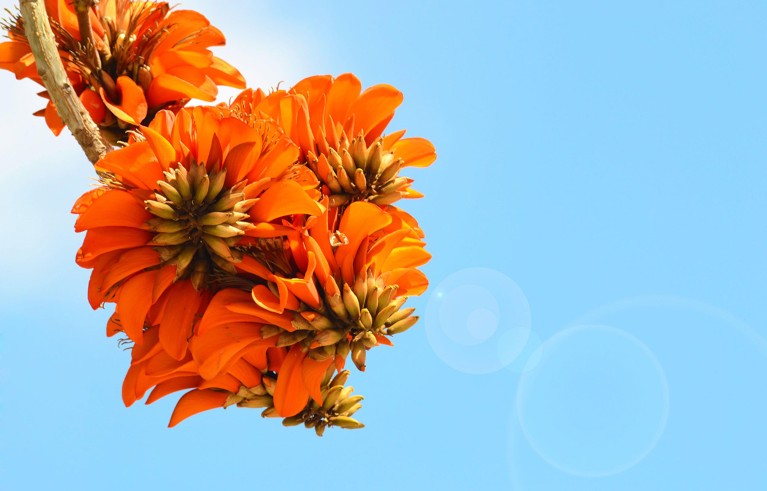
From 2026, plants such as Erythrina caffra will instead be known as Erythrina affra.Credit: Orazio Puccio/Alamy
For the first time, researchers have voted to eliminate scientific names of organisms because they are offensive. Botanists decided that more than 200 plants, fungi and algae species names should no longer contain a racial slur related to the word caffra, which is used against Black people and others mostly in southern Africa.

Many plant names are offensive: botanists will vote on whether to change them
The changes voted on today at the International Botanical Congress in Madrid mean that plants such as the coast coral tree will, from 2026, be formally called Erythrina affra, instead of Erythrina caffra.
“We throughout had faith in the process and the majority global support of our colleagues, even though the outcome of the vote was always going to be close,” says Gideon Smith, a plant taxonomist at Nelson Mandela University (NMU) in Gqeberha, South Africa, who proposed the change along with fellow NMU taxonomist Estrela Figueiredo.
Their proposal takes species names based on the word caffra and its derivatives and replaces them with derivatives of ‘afr’ to instead recognize Africa. The measure passed in a tense secret ballot, with 351 votes in favour against 205 opposed.
Alina Freire-Fierro, a botanist at the Technical University of Cotopaxi in Latacunga, Ecuador, says it was good that the ‘caffra’ amendment was passed, because of the offence it causes. But its passage could open the door for other similar changes, she says. “This could potentially cause a lot of confusion and problems to users in many fields aside from botany.”
Committee created
A second change to the rules for naming plants that aimed to address problematic names, such as those recognizing people who profited from the transatlantic slave trade, also passed — albeit in a watered-down form, says Kevin Thiele, a plant taxonomist at the Australia National University in Canberra, who made the proposal.

I train farmers to use plant science in the fight against climate change
Scientists attending the Botanical Congress Nomenclature Section voted to create a special committee to deal with the ethics of names for newly described plants, fungi and algae. Species names — usually determined by the scientists who first describe them in the scientific literature — can now be rejected by the committee if deemed derogatory to a group of people. But this applies only to species names given after 2026, not to historical names that Thiele and others would like to see eliminated.
Thiele says that the creation of a naming ethics committee and rules to deal with derogatory new names are probably the best he could have hoped for at this Congress, and “at least it’s a sliver of recognition of the issue”.
